Asia's Toughest Jobs: The women helping to build Cambodia
Construction workers are in demand in Cambodia as the country embarks on an ambitious building drive. Many of them are women, but they earn less than men doing similar work. As part of Channel NewsAsia’s series on Asia’s toughest jobs, Jack Board met one of them.
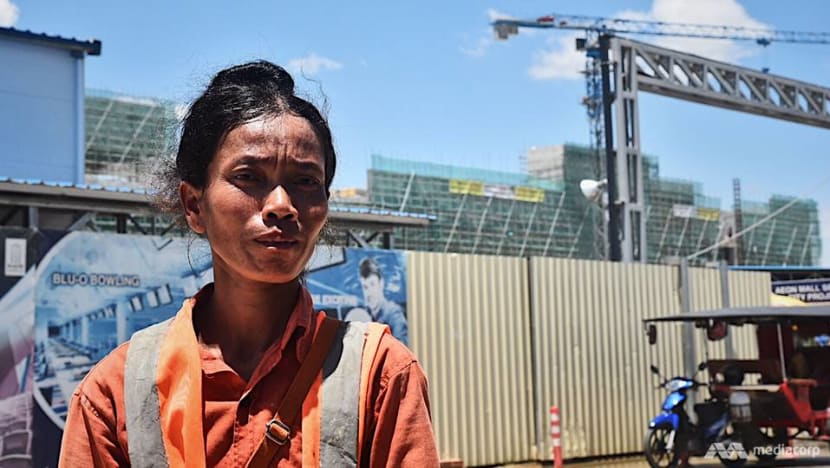
Khuon Theourn has been working in construction for as long as she can remember. (Photo: Jack Board)
PHNOM PENH: Khuon Theourn has known nothing but work for her entire life.
She never went to school, cannot write her own name and has no recollection of her age. But she is a fundamental cog in Cambodia’s economy.
Her current workplace is one of dozens of mega construction sites in Phnom Penh, symbols of a city with lofty development ambitions.
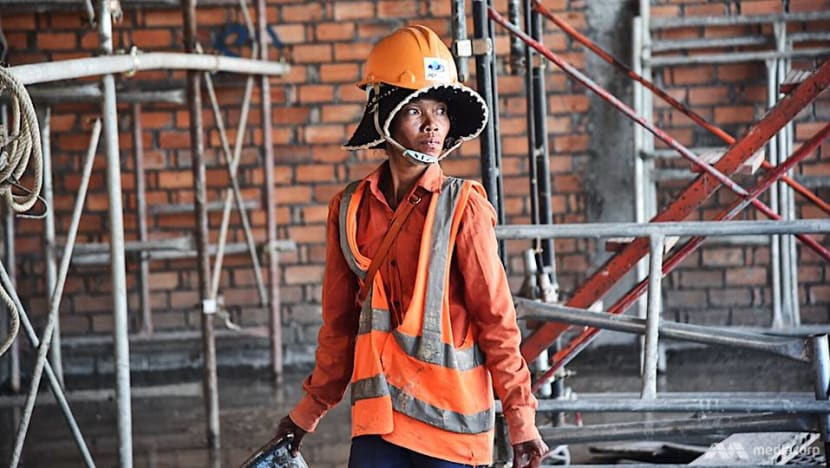
Theourn has punched in on the site of the enormous commercial project every single day for the past month and a half, without fail. She can hardly afford to miss a shift.
The pay is still low – Theourn earns about US$6 per day, notably about 20 per cent less than for men doing similar work – conditions can be unsafe, sexual harassment is not uncommon and on-site training is often non-existent.
For much of her eight-hour shift, she squats to stack bricks, grasp them in her coarse, cracked hands and shift them a few metres away. She will mix cement, sweep dusty floors and, if required, carry metal loads to where they're needed.
But the 38-year-old is hard to notice on the busy site, assimilating with hundreds of other men and women in orange safety wear. “I can do anything. Whatever they ask me to do,” she said. “If I need to carry iron bars, I will do it.”
Unlike many countries, women stand alongside men on Cambodia’s construction sites, expending physical effort and sacrificing traditional family roles to help build hotels, shopping complexes and high-end housing.
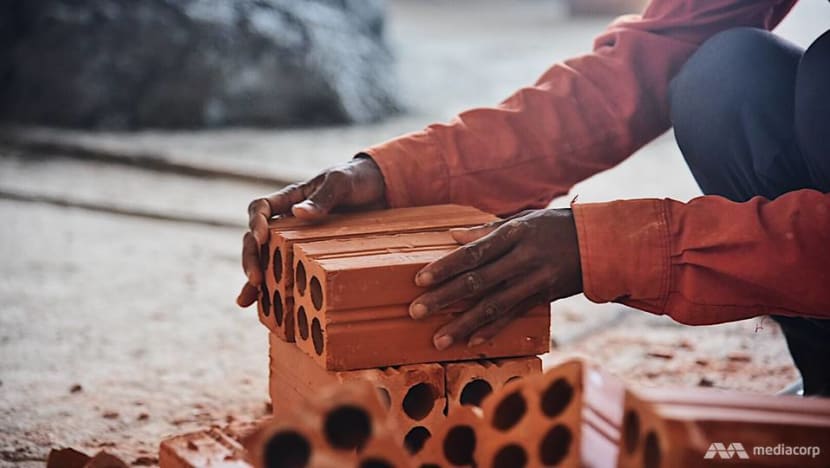
Construction jobs are in abundance and an increasingly viable working option for women as growth in the country’s garment sector eases.
Work is a form of empowerment for many women, giving them financial independence and the ability to better support their families. For Theourn, labouring is absolutely a necessity and has been since she was a child.
“Since I was born, my dad was always been sick and we never had education. In the countryside, I used to do day labour in harvesting and rice planting,” she said.
“But now, since there are machines available they can plough with, there’s very little work left to do.
“I left home and have been working to make a living for I don’t know how many months or years. I have no rest. Even after I married and had kids, I have never experienced living at home like other women. I am always on the move.”
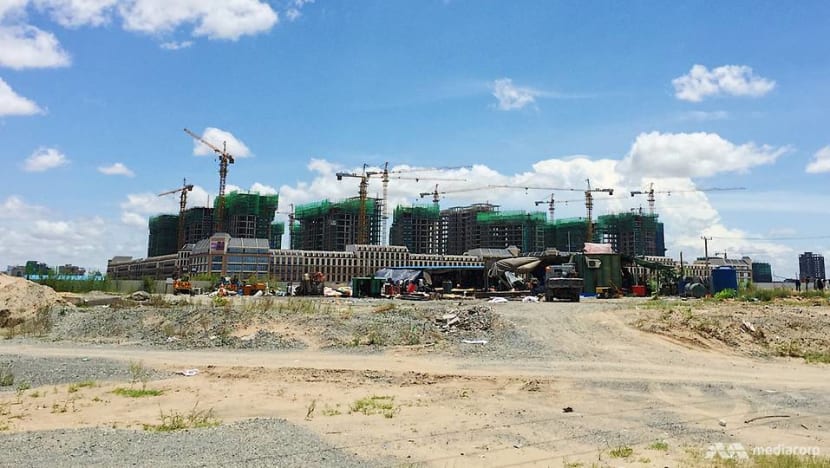
Like many of her compatriots, her pursuit of an income has taken her abroad to neighbouring Thailand, where she believes the construction industry is even tougher than at home. A further issue is that many workers are in Thailand illegally - in recent weeks, thousands of Cambodians have fled over fears of a crackdown on illegal migrant workers.
“In Thailand, it’s kind of hard, working under the rain and carrying wood and iron,” she said.
“It was very difficult. Both my husband and I went there to work and he started drinking until he developed a mental issue. I cried every day.”
Her husband’s worsening health and the difficulty of the work meant the couple soon had to return to Cambodia, without any of the savings they were aiming for. With no Thai language skills, she explained, they were also exploited by an unscrupulous operator.
“I was cheated. They didn’t give me all my money even when I was coming back to Cambodia.”
Despite that experience, both have continued to toil on work sites since.
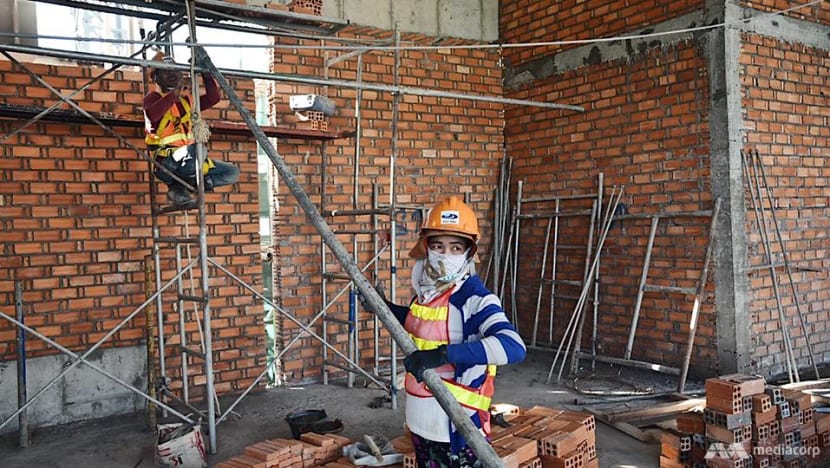
Most work for women is non-regular and transient, making accurate statistics difficult to gather. However, CARE’s research showed that women lacked protection and were exposed to health, safety and social security shortcomings.
“Construction is considered one of the most dangerous industries in the country,” the report read. “Many women have migrated from rural areas to work in Phnom Penh, and are often in the lowest-paid positions without equal pay even for equal work.
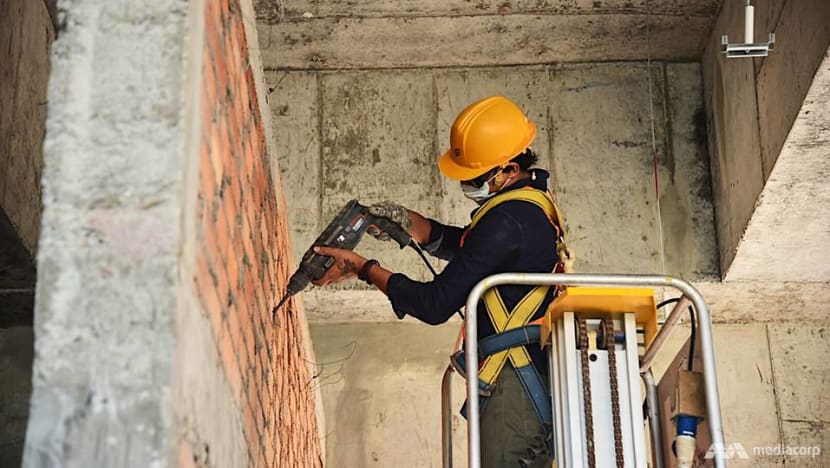
“Gender stereotypes currently prevent female construction workers from performing certain tasks and gaining relevant useful skills.”
While the construction industry is protected under Cambodian labour law, the report found that half of female workers surveyed were unsure if their conditions were regulated or not. About two-thirds had no formal written contract.
In 2016 alone, 2,636 construction projects were approved by the government, valued at more than US$8 billion. A further 1,523 projects were approved in the first six months of this year.
It means more and more unskilled workers are being drawn into the orbit of these developments.
LONG DAYS, FAR FROM HOME
Khuon Theourn’s workday begins before dawn.
Normally she prepares food for her lunch the night before and sets out on foot at about 5am to walk 45 minutes along a dusty road from her worker accommodation to the construction site.
Her living quarters are basic – a dimly lit space akin to a storage container with corrugated iron walls, which she shares with five other people, including her sister. Each resident sleeps under a mosquito net with a simple mattress, surrounded by their cooking utensils and other meagre possessions.
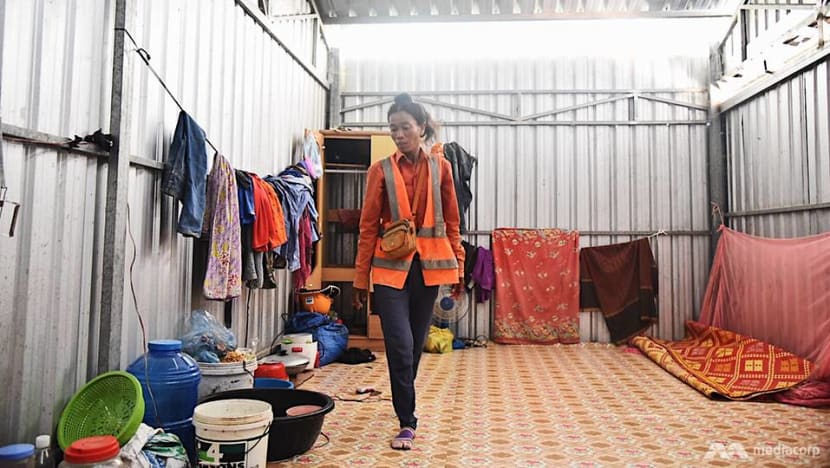
The environment is unsuitable for children, so she seldom sees her three- and five-year-olds, who live with their elderly grandmother in Prey Veng province, about 100 kilometres away.
“Yes, sure I miss them. But what can we do? We don’t have much, we need to make a living and my mother is sick so I need to save up for her in the future.”
While she tries to provide for her family, Theourn also regularly feels the effects of her demanding work.
She wears a broad-brimmed hat underneath her safety helmet, but the effects of age have come early to her sun-spotted face. And she admits to having to borrow money for medicine when overcome with dizzy spells or fever on site.
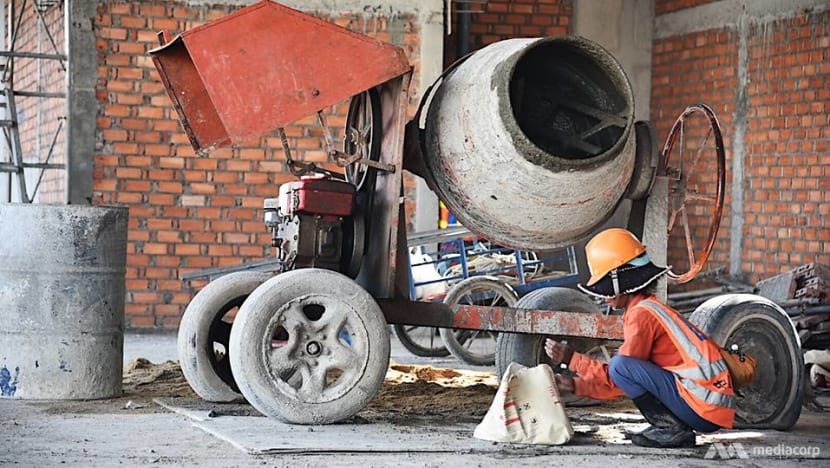
“While working and lifting heavy things, I have a pain in my forehead. I also used to feel shaking while working.
“I stayed and continued to work and was afraid to tell people and the masons. While carrying the cement, after giving it to them, I would run to the sunlight to feel warm. Even under the sun I was still shaking and feeling cold,” she said.
She says she has little hope for change in the future. But these are the workers that Cambodia is being built upon and her role is perhaps more important than she knows.
Yet, their energy to keep on working is finite under current conditions. “I don’t know how many years more I can do this. It depends on my strength,” Theourn said.
“As long as I can do it, I will. If I can’t anymore, then that’s it.”














